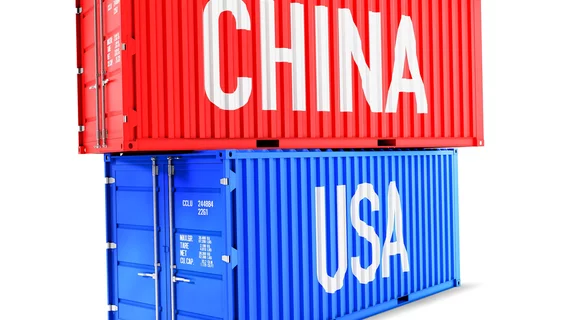NEMA urges USTR to ‘minimize collateral damage’ with any additional Chinese tariffs
Kevin J. Cosgriff, president and CEO of the National Electrical Manufacturers Association (NEMA), testified Tuesday, August 21, that NEMA and its member companies hope the Office of the U.S. Trade Representative (USTR) can ensure that further tariffs on Chinese products come with specific targets and time limits in place.
The U.S. government is currently considering an additional round of tariffs on $200 billion in Chinese goods, including $18 billion in products of a direct interest to NEMA’s member companies. More information on the ongoing trade war between the U.S. and China—and how it is affecting the medical imaging industry—can be read here.
According to a prepared statement from NEMA, Cosgriff said in his testimony that the association fully supports the government’s actions, but urges officials to “minimize collateral damage.”
“NEMA agrees with the Administration's intent to pursue and produce negotiated outcomes that restore and, whenever possible, advance market openness and fairness,” Cosgriff said. “We encourage U.S.-China discussions in Washington, DC, this week to earnestly construct a path toward those outcomes.”
NEMA is also preparing written comments about these tariffs to file with the USTR by Sept. 6.

